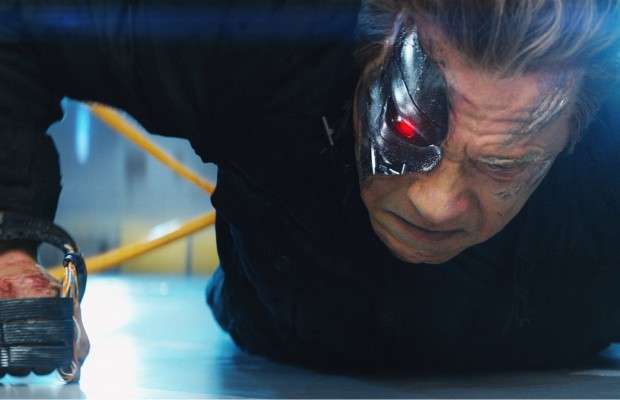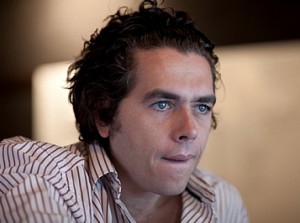‘Terminator Genysis’ Composer Lorne Balfe’s Take On The Legacy Of Movie Music

Originally scored by composer Brad Fiedel, the “Terminator” franchise has one of the most iconic and identifiable movie score hooks in the history of film. DUH-DUN DUN DUH-DUN! So how do you write a movie score that can stand by itself, but still pay tribute to and incorporate the original?
That was the task Lorne Balfe (Dark Knight, Sherlock Holmes, Iron Man) had in composing the music for one of 2015’s big releases, “Terminator Genisys.” Balfe has worked on several summer blockbusters and has collaborated with iconic movie composer Hans Zimmer on multiple projects including massive video game franchises like Assassin’s Creed, Call of Duty, and Crysis –to name a few.
‘To me, the reason I kind of love film and I kind of love TV and games is the whole point of escapism. It’s that period of 90 minutes where you get to forget about your problems in life and just escape and delve into another world,” Balf said about why he likes working on blockbusters. “Critics are always going to have a point of view regarding something, and such is life. But the thing is that just being able to go and have that piece of escapism and have action and have laughter and have fun and feel emotion is surely what this is all about.”
The “Terminator” family of movies has always been considered a dark saga of films –with little to no hope on the horizon for the human race– and the scores for the previous films were created to reflect that darkness. According to Balfe, what always fascinated him about the original score was that, “it was music, but it wasn’t necessarily what we would describe as music, it was more organic sound being manipulated.”
We asked Lorne about another movie franchise, “Superman,” of which legendary composer John Williams did the original score and the decision by Hans Zimmer to move away from that score in his composition of “Man of Steel.” If you listen to “Man of Steel,” very little, if any of John Williams’ “Superman” themes are used during the course of the film. This is likely attributed to the new look and tone of the film. While the original stories are somewhat similar, in “Man of Steel,” the tone is much darker and serious and the score reflects that.
Balfe decided not to use the same approach as Zimmer.
“The tricky thing with it is –that it’s always one of the first conversations that happens, really, especially with franchises and sequels– what are we taking from the past? And obviously visually, the characters may be the same, the characters’ names might be the same, but of course it will look different, or there’s a different angle to it,” Balf said of the approach he took in creating the score for the latest installment. “And I think right from the beginning, we kind of all knew that, especially because there are scenes like Griffith Park when Arnold is walking up to the punks, it’s identical and it’s like why do a brand new piece of music underneath that arrival? You lose the whole point of it, it’s an homage, it’s meant to kind of bring you back to that feeling of when you first watched it. If we didn’t do it, we would have ended up cheating the fans really.”
In writing for “Terminator: Genysis,” Balfe made it paramount to stay true to the roots of the original music and in doing so, was able to weave in some synthesizer laden beats that you can hear throughout the orchestral score of the film. More importantly, purposefully using the original theme at certain points during the movie was a strategy that Balfe employed to “represent the legacy of the original score.”
The latest installment in the “Terminator” franchise, “Terminator Genisys,” is a film that completely turns the original storyline on its head while straddling the line of charming and quirky with some of its dialogue. In the end, the score is an entertaining homage to the original and successfully lays the groundwork for the series going forward.




